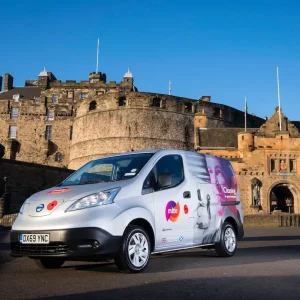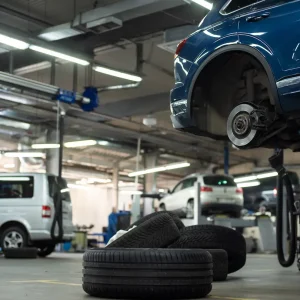Rather than use the PBR to trumpet major policy announcements Gordon Brown chose to put off the major decisions until next year’s Budget. That, according to Rupert Saunders, must only mean one thing.
Business car managers hoping the Pre-Budget Report would provide some clues to future fiscal policy on company cars will have been severely disappointed.
Indeed, the Chancellor seemed to put off most of the decisions we had been expecting until the main Budget speech (usually in March) next year. This is in sharp contrast to recent times, when decisions have been announced in the Report and then enacted or confirmed in the main Budget itself.
If you want to look at the detail, you need to download Chapter 7 of the Report (http://prebudget2006.treasury.gov.uk), which is entitled ‘Protecting the Environment’. Skip to page 169 and you’re getting to the meat of it. However, as with much of the rest of the statement, there is a lot of waffle and not much detail. Petrol prices up (but not above the rate of inflation) and some encouragement for a switch to biofuels (but given the Government’s woefully inconsistent attitude to LPG in the last few years, it would be brave fleet manager who jumped on this bandwagon just yet).
Then there are the gems. How about this: “Regulations will be brought forward early in 2007 to ensure the widespread availability of sulphur-free diesel and sulphur-free ‘super’ grades of petrol”.
Note the use of the phrase “to ensure”. This reads to me like they are going to force the fuel companies to allocate a certain percentage of their pumps to sulphur-free fuel. But, so long as these super-grade fuels are 8p to 10p a litre more expensive than regular grades, are we really going to use them?
Even if you run a fleet of direct-injection petrol engines (the FSI-technology that works best on sulphur-free fuel) it is going to be hard to justify on cost grounds alone. And, ultimately, it is keeping the cost of your business car fleet under control that is your responsibility.
|
“Given the Government’s fondness for grand gestures, I see a major policy statement looming – wrapping all these details into a single document that emphasises its ‘green’ credentials and the need to further manage both personal and business travel.” |
|
Rupert Saunders |
That, along with savings in personal taxation, has been the main driver for the growth of Employee Car Ownership (ECO) schemes. All the signs are that the Government is struggling to get to grips with this one and, having created the opportunity, it is not sure how to close the loophole. Further discussions will take place “in early 2007”.
Also put off till 2007 are any decisions on the new regime for fuel scale charge (to be based on CO2 ratings) and any decision on reform of capital allowances. Once again, discussions “are continuing” and we won’t even see proposals on this latter point until Budget 2007.
Also coming up in next year’s Budget will be the business car tax thresholds for 2009-10. Given that we already know the lower 15% threshold is down to 135 g/km from 2008, it seems a good bet this downward movement will continue.
Where is all this leading? Plainly the Government is comfortable with the current CO2-based business car tax regime and that is not going to change. But a number of detailed policy decisions have to be made in the first quarter of 2007 or at least by the time of the Budget.
Given the Government’s fondness for grand gestures, I see a major policy statement looming – wrapping all these details into a single document that emphasises its ‘green’ credentials and the need to further manage both personal and business travel.
Such a policy statement could have a significant effect on how you manage your fleet. My advice for now would be to sit tight, do nothing and wait. In the meantime, enjoy your Christmas break.





